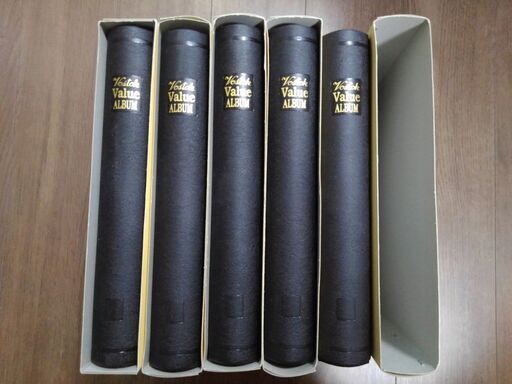-
シーンから探す
- コミック/アニメ
- ネックレス
- クラブ
- 鉄道模型
- カメラ、光学機器
- 奈良県のその他
- 農業
- 茨城県のその他
- ブランド別
- 菓子
- メンテナンス用品
- ブランド別
- オーディオ機器
- タバコグッズ
- 美術品
- Gジャン/デニムジャケット
- オーディオ機器
- カジュアルパンツ
- ストーブ/コンロ
- パソコン用
- 楽器、器材
- 武具
- 長財布
- 置物
- その他
- カジュアルパンツ
- ダウンジャケット
- パーツ
- フィギュア
- その他
- 長財布
- その他
- パーツ
- 工芸品
- 同人誌
- セキュリティ
- トップス(Tシャツ/カットソー)
- 折り財布
- 愛知県の家具
- キャラクターグッズ
- アート/エンタメ
- エレキギター
- 陶芸
- グローブ
- ブランド別
- 農業
- サングラス/メガネ
- 焼酎
- トイガン
-
贈る相手から探す
- 家具、インテリア
- サスペンション
- ショルダーバッグ
- プロジェクター
- 携帯用ゲーム本体
- ストーブ/コンロ
- 工具、DIY用品
- 腕時計(アナログ)
- テーブル/チェア
- キャラクターグッズ
- カーペット/マット/ラグ
- テント/タープ
- 靴
- ホビーラジコン
- スニーカー
- サングラス/メガネ
- 自転車、サイクリング
- 楽器、器材
- 船、ボート
- オートバイ
- 工具、DIY用品
- キッチン/食器
- コミック/アニメ
- スニーカー
- オートバイ車体
- 飲料
- 家具、インテリア
- ステンカラーコート
- 時計
- その他
- キッチン家電
- サンダル
- クラブ
- オーディオ機器
- ルアー用品
- バッジ
- ファッション小物
- ブランド別
- 家具、インテリア
- 時計
- コミック/アニメ
- おもちゃ
- オーディオ機器
- 家具、インテリア
- ローソファ/フロアソファ
- レザージャケット
- 工具、DIY用品
- オーディオ機器
- テーブル/チェア
- 群馬県のその他
- カテゴリから探す
- おまとめ注文・法人のお客様
孤独のグルメシーズン1〜8まとめて ベスト
-
商品説明・詳細
-
送料・お届け
商品情報
孤独のグルメ DVD season1〜8 孤独のグルメ season1全3巻 孤独のグルメ season2全3巻 孤独のグルメ season3全3巻 孤独のグルメ season4全3巻 孤独のグルメ season5全4巻 孤独のグルメ season6全3巻 孤独のグルメ season7全4巻 孤独のグルメ season8全4巻 バラ売りは致しませんのでご了承願います。 原作: 久住昌之 画: 谷口ジロー 主演: 松重豊
残り 7 点 45,000円
(129 ポイント還元!)
翌日お届け可(営業日のみ) ※一部地域を除く
お届け日: 11月27日〜指定可 (明日16:00のご注文まで)
-
ラッピング
対応決済方法
- クレジットカード
-

- コンビニ前払い決済
-

- 代金引換
- 商品到着と引き換えにお支払いいただけます。 (送料を含む合計金額が¥291,028 まで対応可能)
- ペイジー前払い決済(ATM/ネットバンキング)
-
以下の金融機関のATM/ネットバンクからお支払い頂けます
みずほ銀行 、 三菱UFJ銀行 、 三井住友銀行
りそな銀行 、ゆうちょ銀行、各地方銀行 - Amazon Pay(Amazonアカウントでお支払い)
-

































